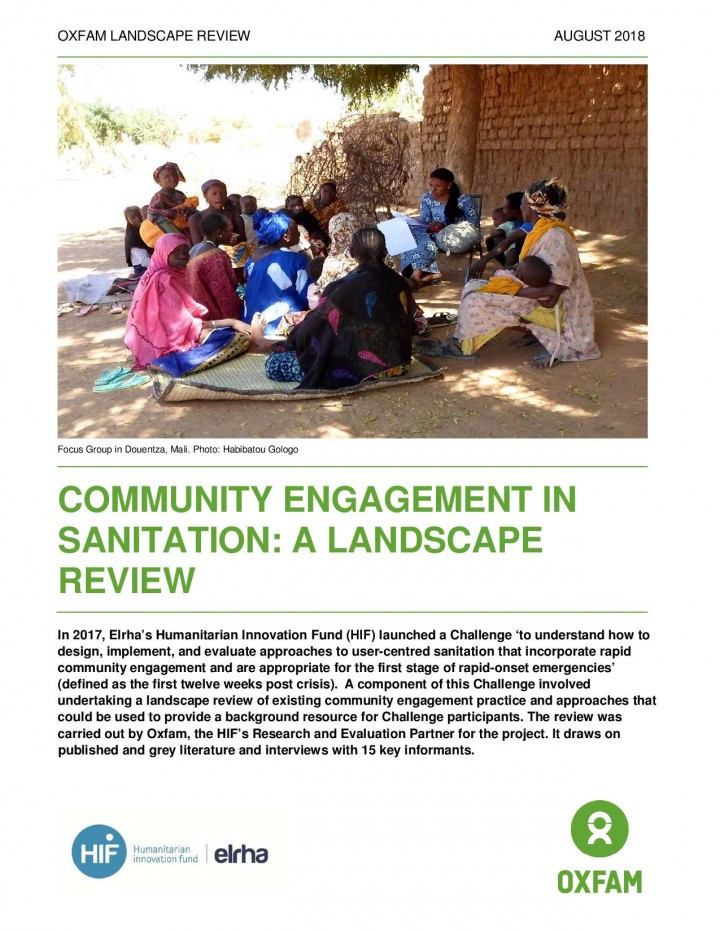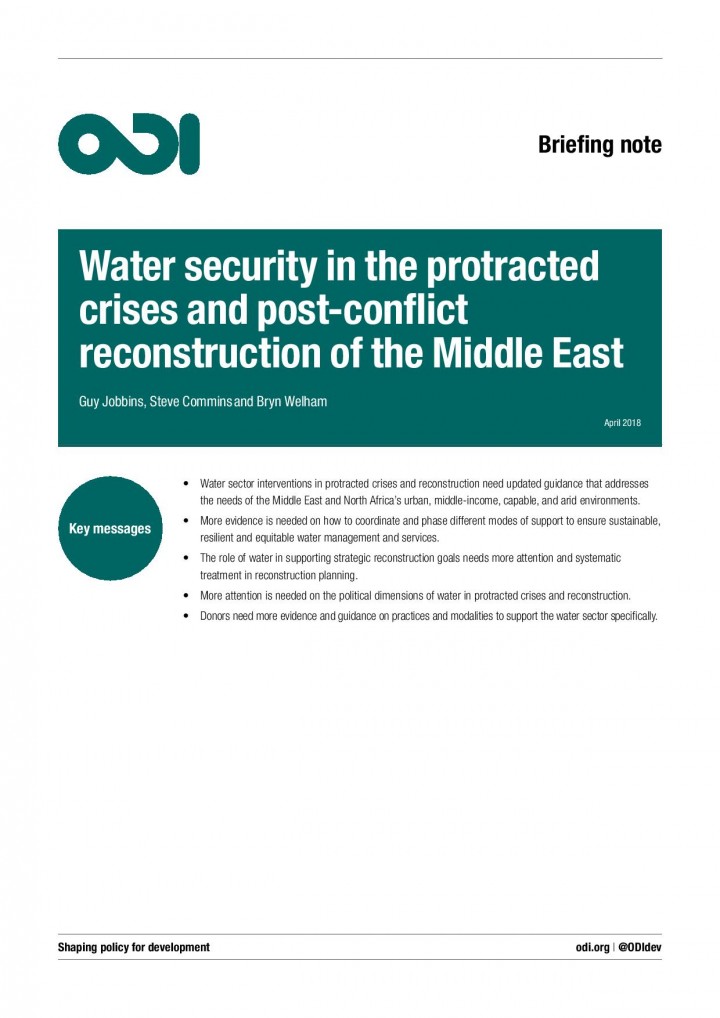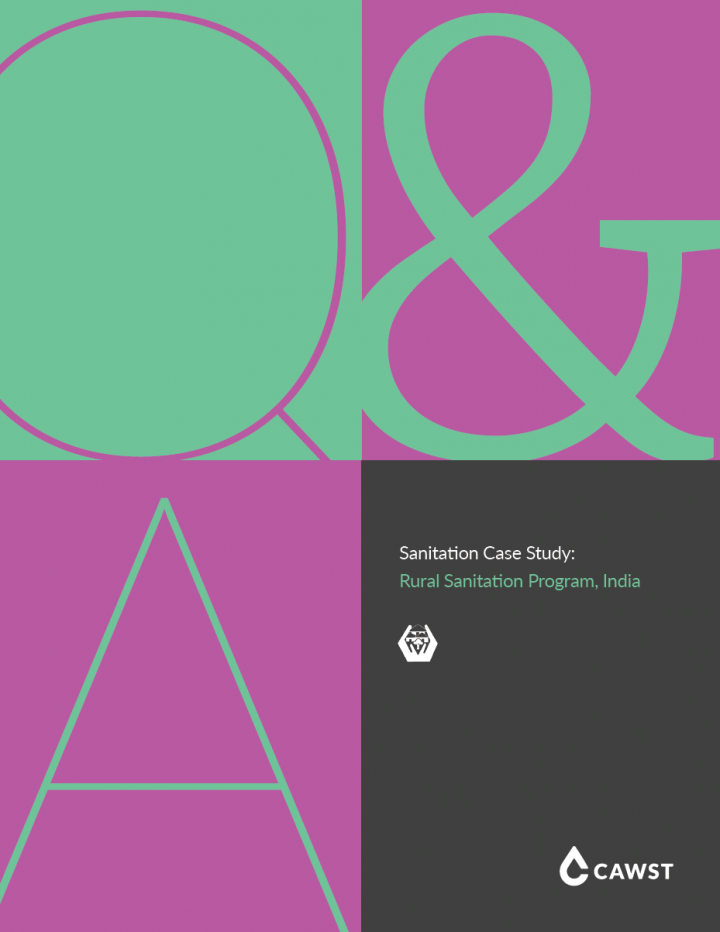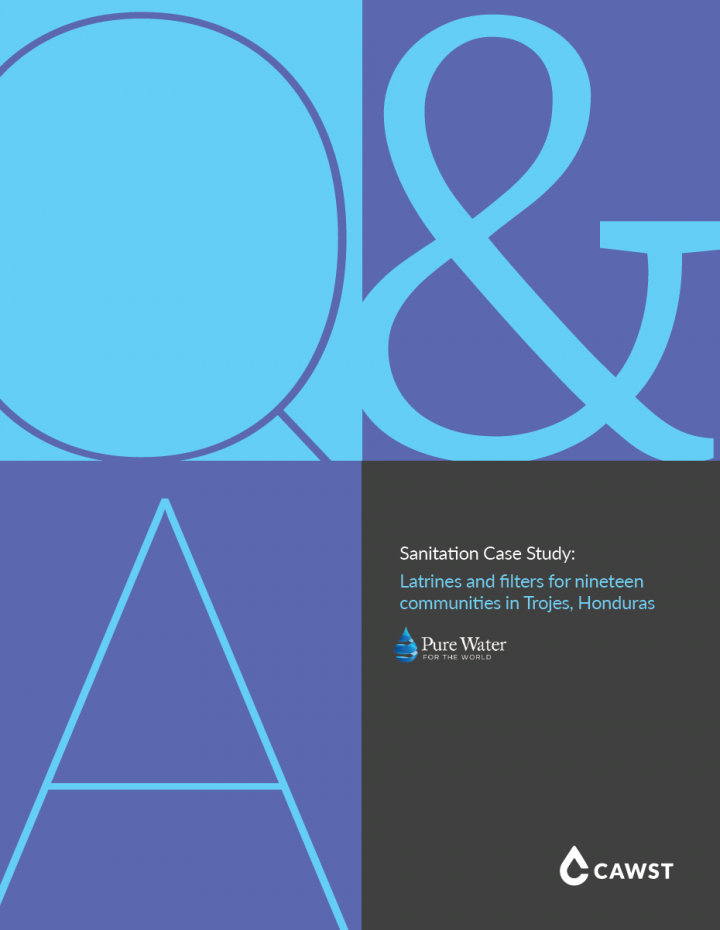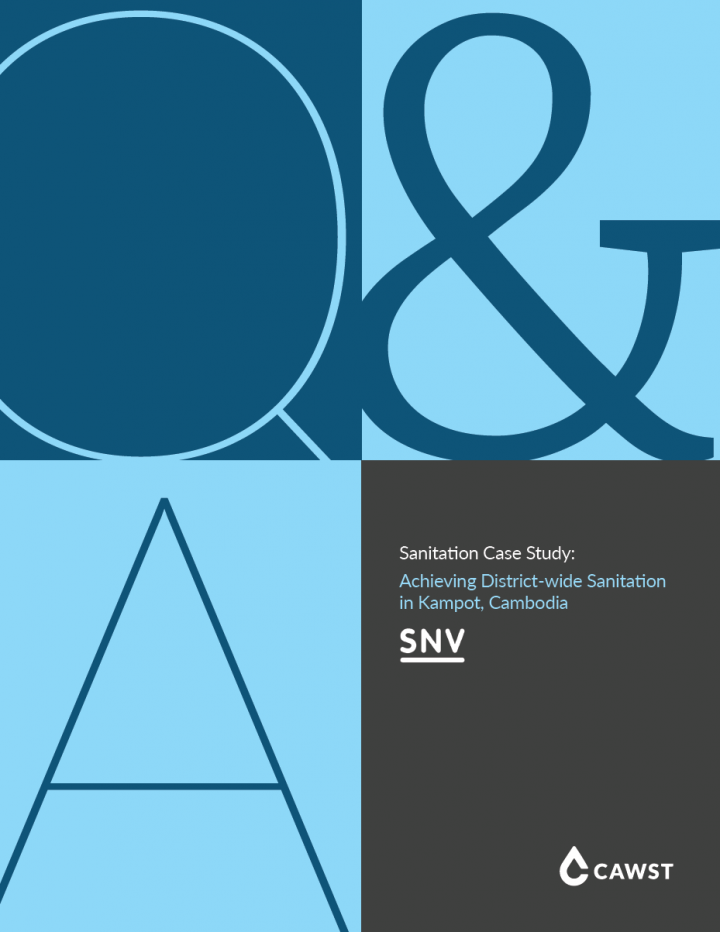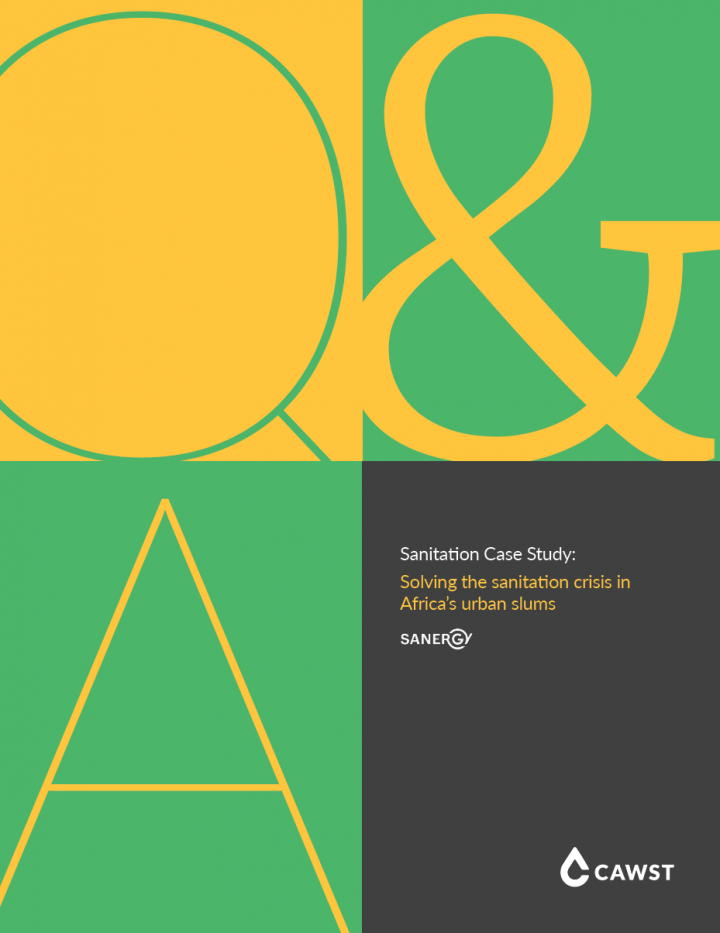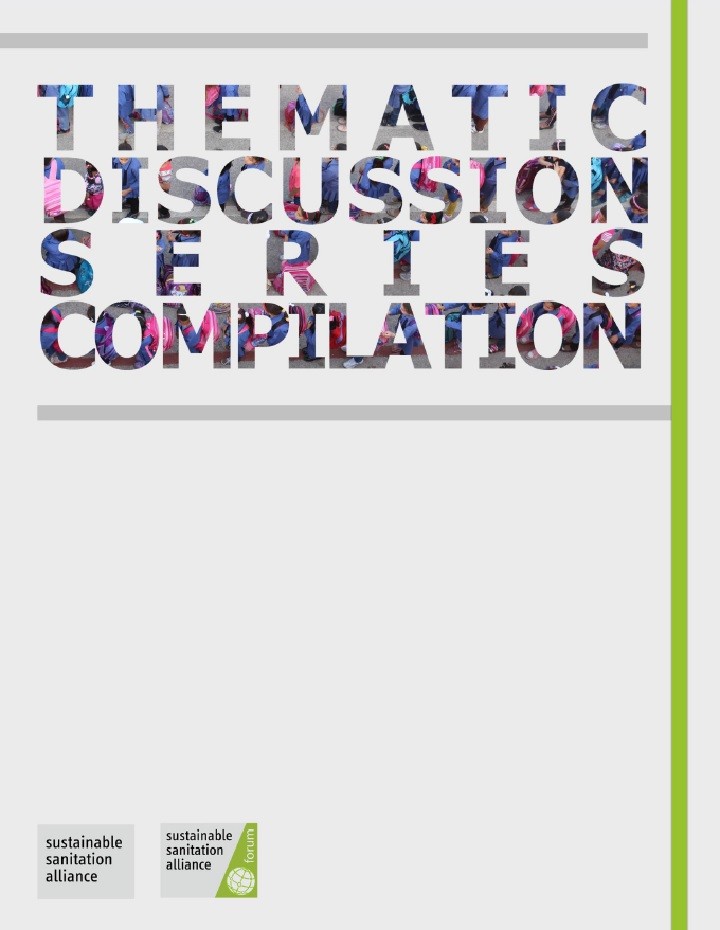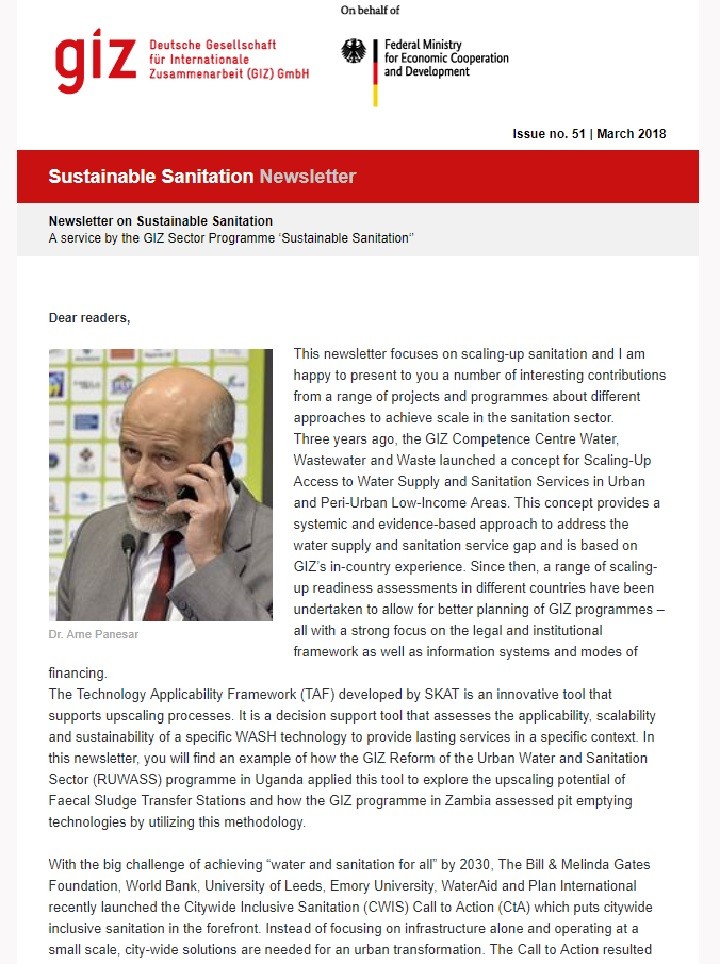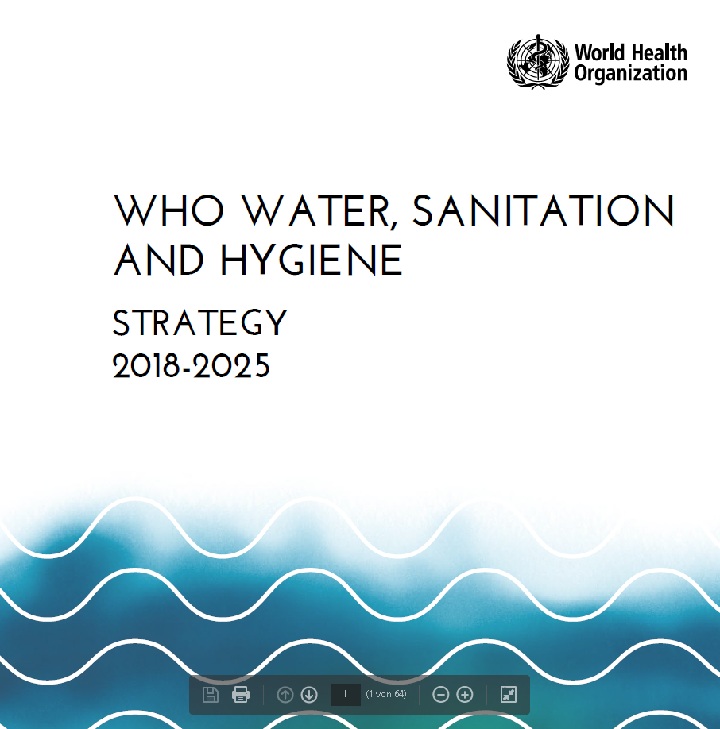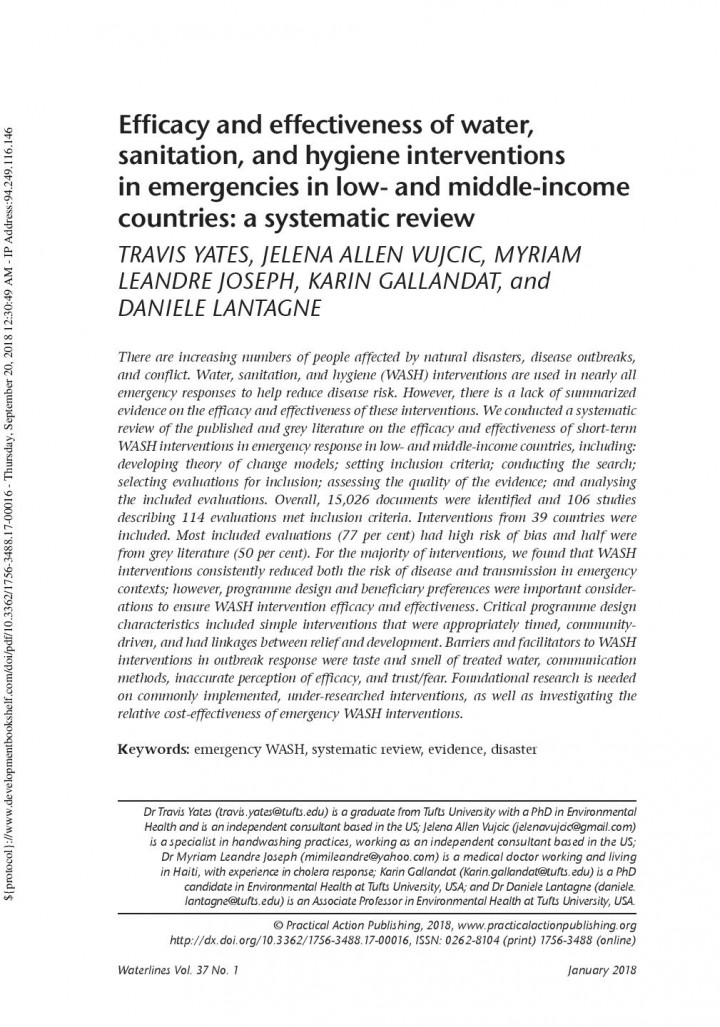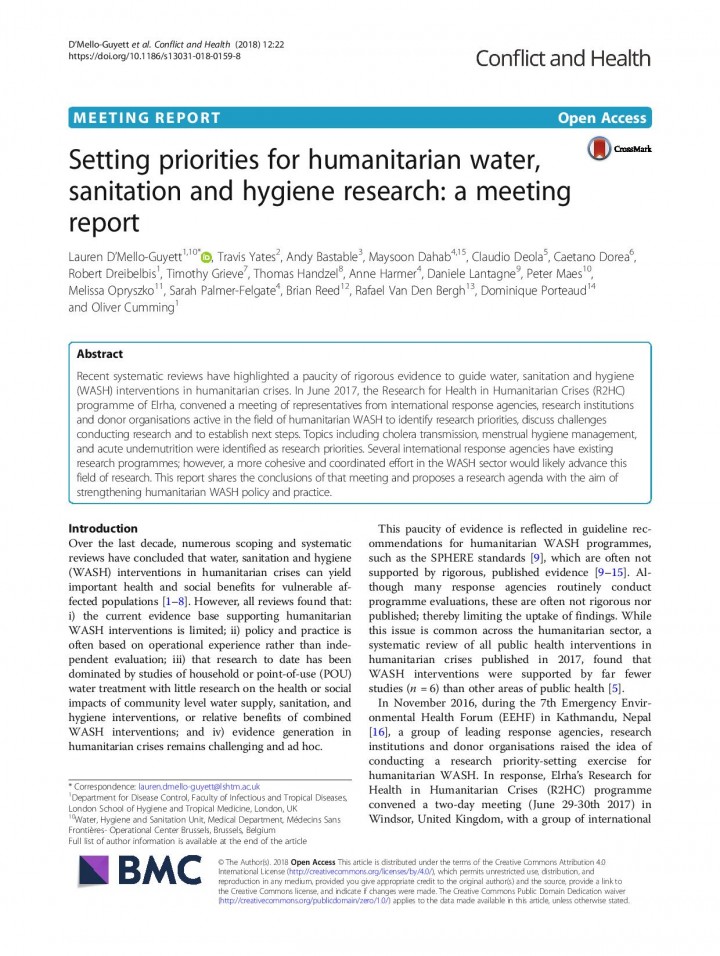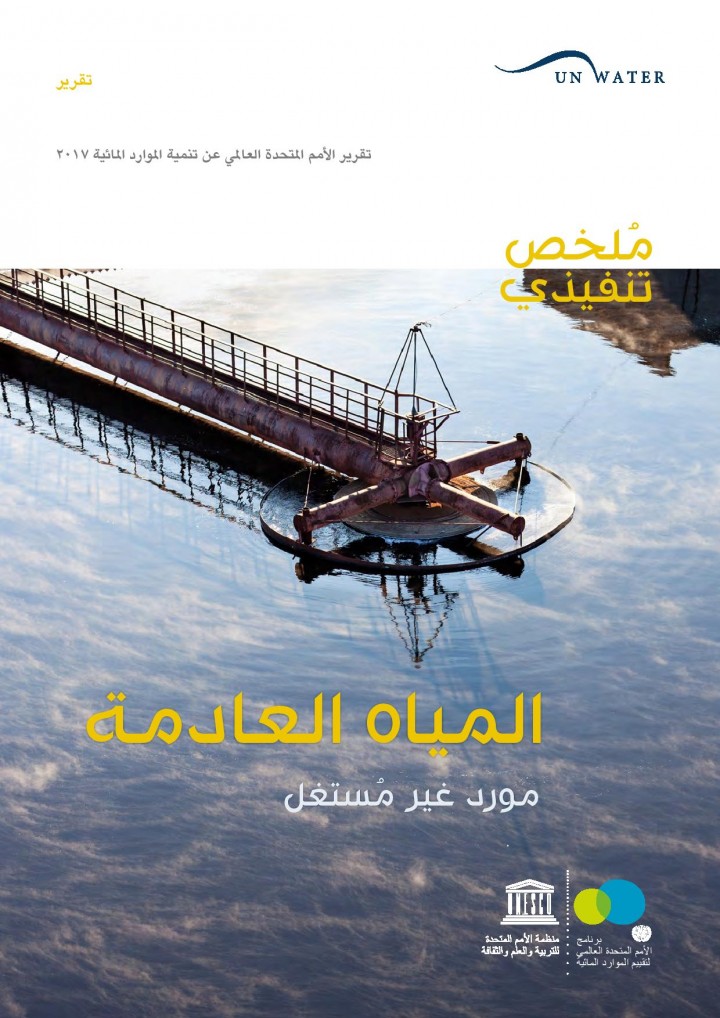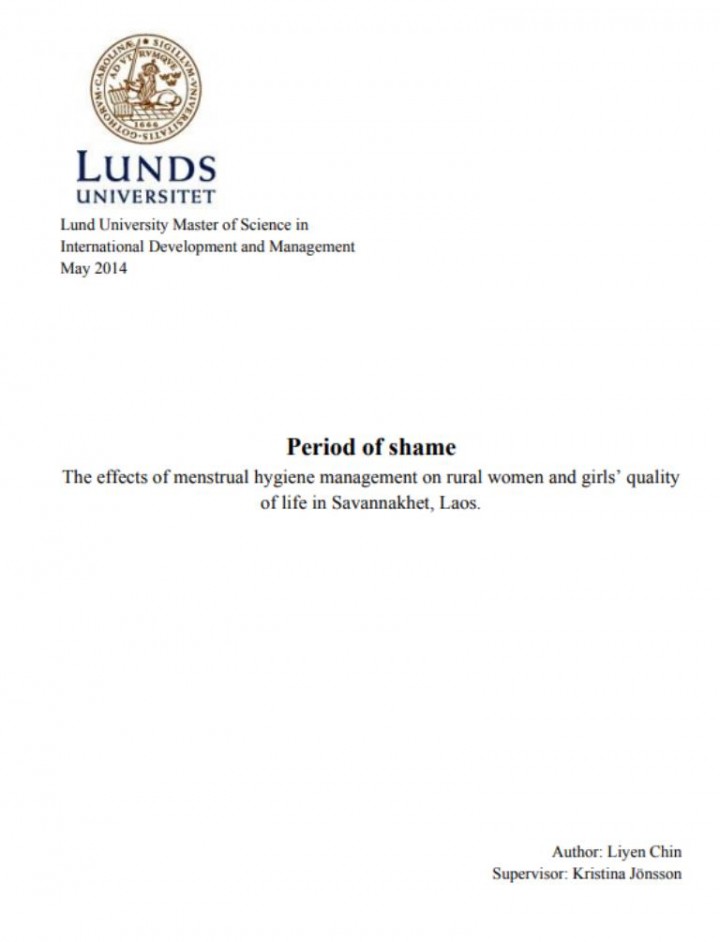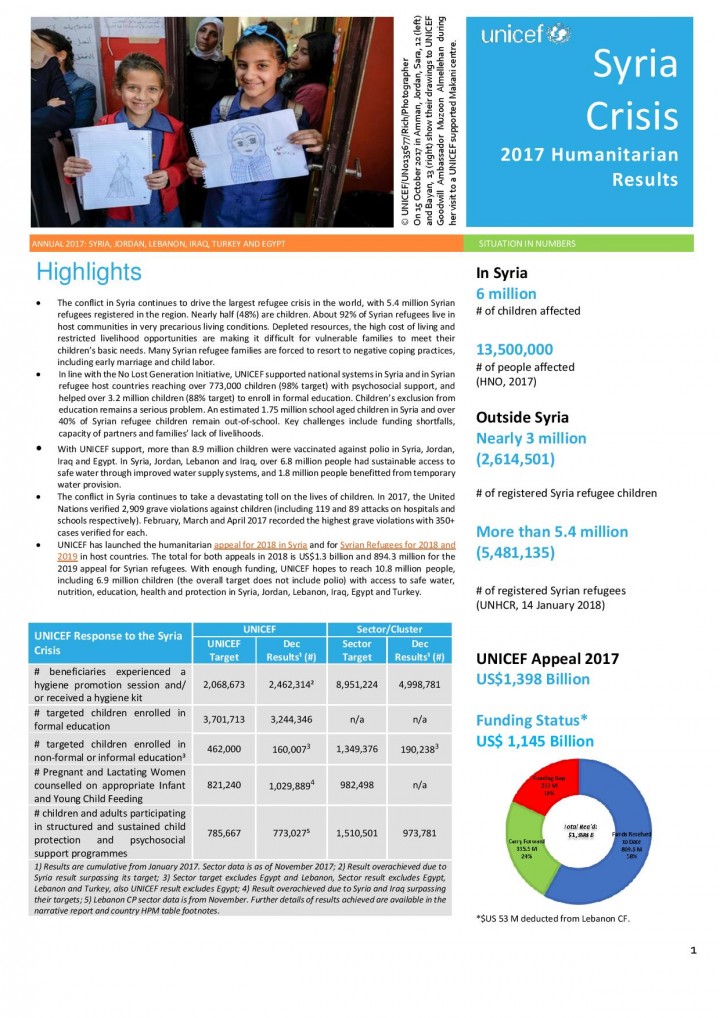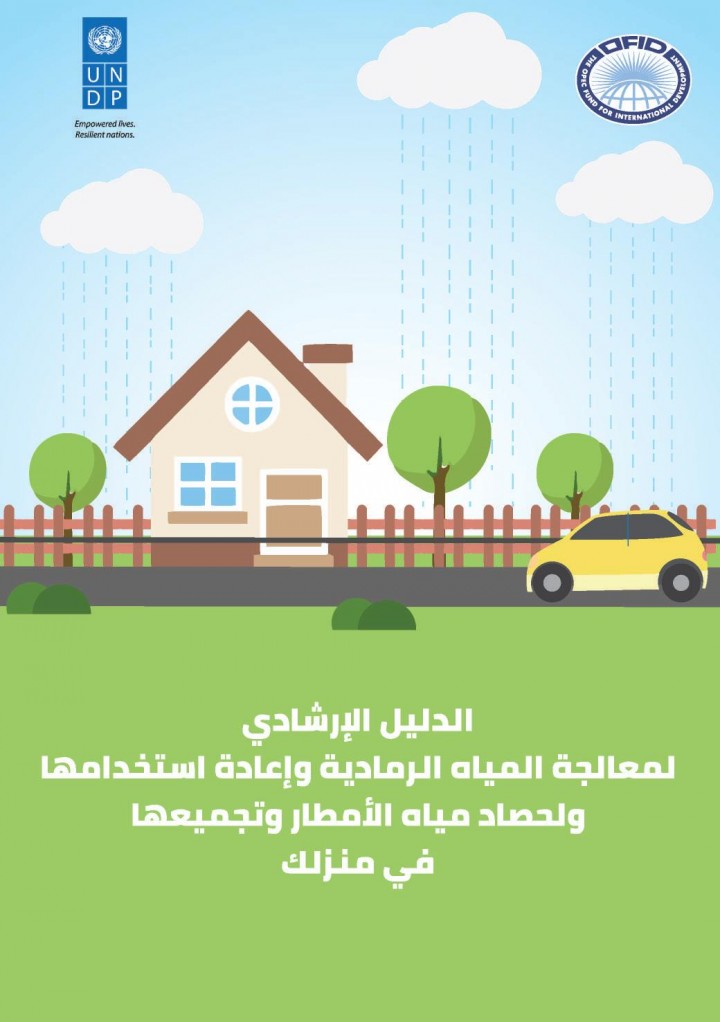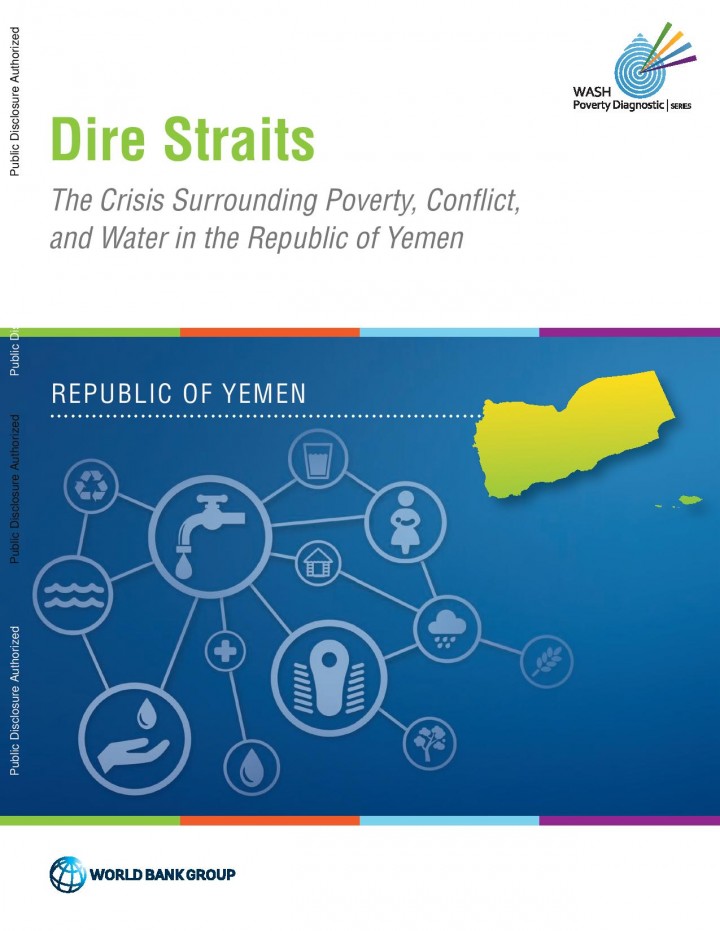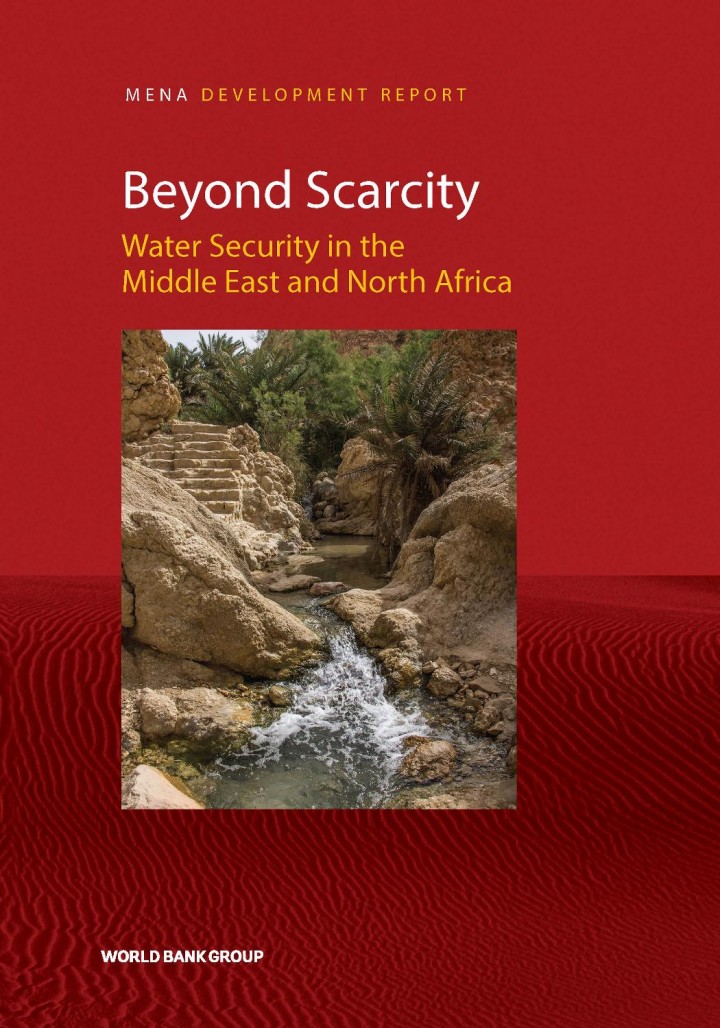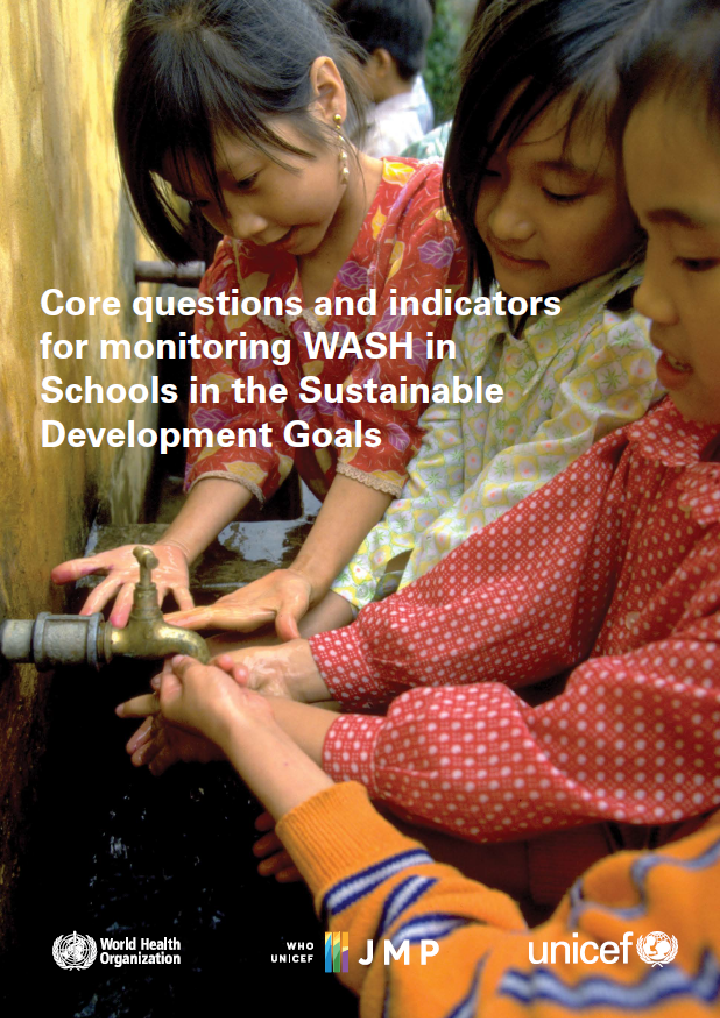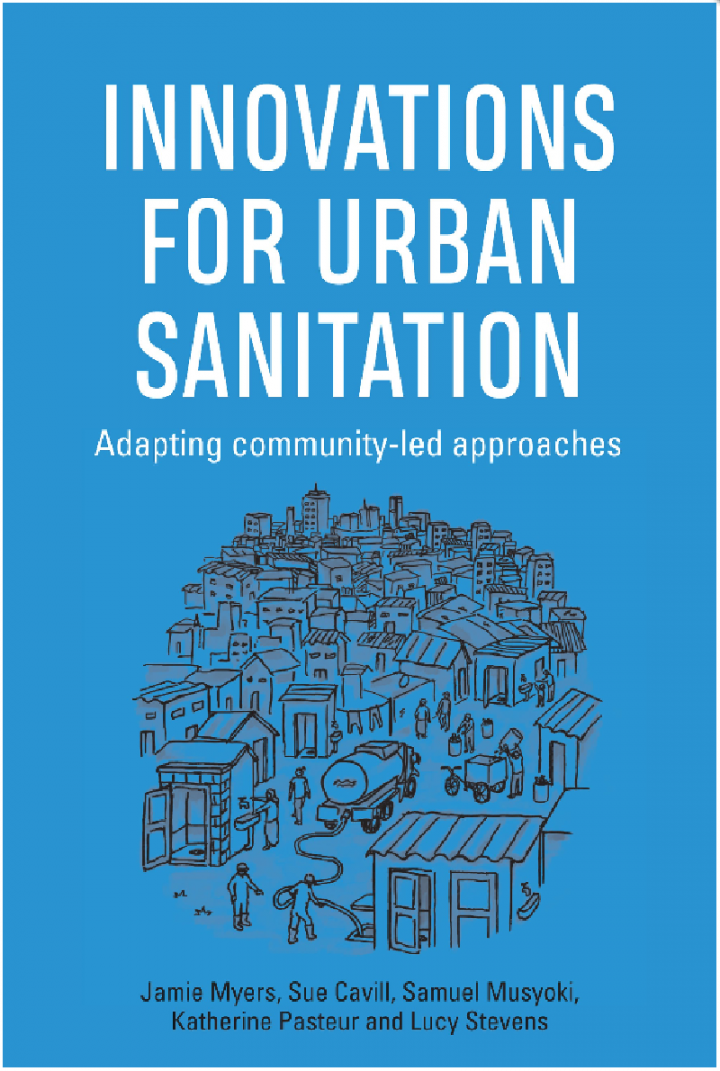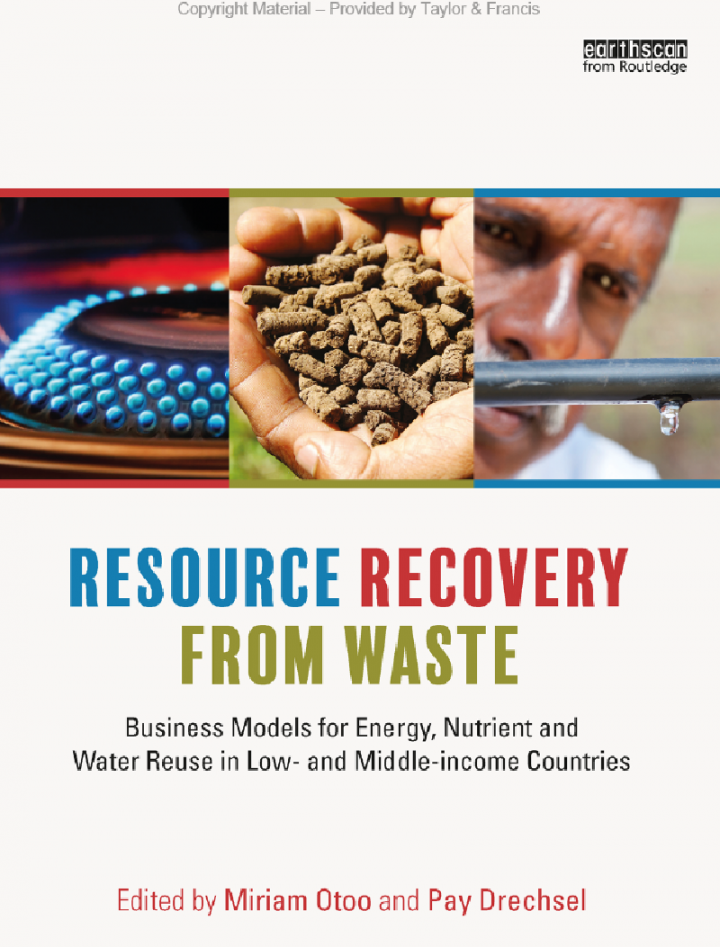Sandison, P. (2018) Community Engagement in Sanitation: A Landscape Review Oxfam Landscape Review
In 2017, Elrha’s Humanitarian Innovation Fund (HIF) launched a Challenge ‘to understand how to design, implement, and evaluate approaches to user-centered sanitation that incorporate rapid community engagement and are appropriate for the first stage of rapid-onset emergencies’ (defined as the first twelve weeks post-crisis). A component of this Challenge involved undertaking a landscape review of existing community engagement practice and approaches that could be used […]
Jobbins, G., Steve, C., and Welham, B. (2018) Water security in the protracted crises and post-conflict reconstruction of the Middle East Briefing note
This background paper focuses on supporting sustainable, equitable and resilient water services over the short and long term during protracted crises and for post-crisis reconstruction in the Middle East and North Africa (MENA).
CAWST (2018) Gramalaya in India Sanitation Case Study (in English, French and Spanish)
CAWST’s Sanitation Case Studies give detailed overviews of different latrine programs. Each case study describes how the implementer(s) addressed seven components of latrine programs, and what challenges they have faced.
CAWST (2018) PWW in Honduras Sanitation Case Study (in English, French and Spanish)
CAWST’s Sanitation Case Studies give detailed overviews of different latrine programs. Each case study describes how the implementer(s) addressed seven components of latrine programs, and what challenges they have faced.
CAWST (2018) SNV in Cambodia Sanitation Case Study
CAWST’s Sanitation Case Studies give detailed overviews of different latrine programs. Each case study describes how the implementer(s) addressed seven components of latrine programs, and what challenges they have faced.
CAWST (2018) Sanergy in Kenya Sanitation Case Study (in English, French and Spanish)
CAWST’s Sanitation Case Studies give detailed overviews of different latrine programs. Each case study describes how the implementer(s) addressed seven components of latrine programs, and what challenges they have faced. Each case study is in a “Question and Answer” format.
SuSanA (2018) Thematic Discussion Series Compilation
This compilation comprises synthesis documents from nine Thematic Discussion Series that were active in the SuSanA Forum between February 2015 and May 2017. SuSanA's Thematic Discussion Series is an initiative to engage actors from interconnected areas of expertise. The discussions take place on the SuSanA Forum, are limited to 2-4 weeks and are guided and led by thematic experts. At the end of each discussion, […]
GIZ (2018) Sustainable Sanitation Newsletter 2018 (in English and French) Issue no. 51, March 2018
This newsletter will provide you with a set of updates from the GIZ bilateral water and sanitation programmes in Africa, Asia, MENA and Latin America as well as a selection of news from other sustainable sanitation projects worldwide. This newsletter focuses on scaling-up sanitation.
WHO (2018) WHO Water, Sanitation and Hygiene Strategy 2018-2025
WHO’s 13th General Programme of Work (GPW) 2019–2023 describes how the Organization’s work will contribute to the health of three billion: one billion becoming “healthier populations” through multisectoral actions and addressing environmental risk factors and health determinants; one billion benefiting from better emergency preparedness and response; and one billion with universal health coverage (UHC). A limited number of high profile framework impact indicators, centred around […]
Yates, T., Vujcic, A., Joseph, M. L., Gallandat, K., Lantagne, D. (2018) Efficacy and effectiveness of water, sanitation, and hygiene interventions in emergencies in low- and middle-income countries a systematic review
There are increasing numbers of people affected by natural disasters, disease outbreaks, and conflict. Water, sanitation, and hygiene (WASH) interventions are used in nearly all emergency responses to help reduce disease risk. However, there is a lack of summarized evidence on the efficacy and effectiveness of these interventions. We conducted a systematic review of the published and grey literature on the efficacy and effectiveness of […]
D’Mello-Guyett, L., Yates, T., Bastable, A., Dahab, M., Deola, C., Dorea, C., Dreibelbis, R., Grieve, T., Handzel, T., Harmer, A., Lantagne, D., Maes, P., Opryszko, M., Palmer-Felgate, S., Reed, B., Van Den Bergh, R., Porteaud, D., Cumming, O. (2018) Setting priorities for humanitarian water, sanitation and hygiene research a meeting report
Recent systematic reviews have highlighted a paucity of rigorous evidence to guide water, sanitation and hygiene (WASH) interventions in humanitarian crises. In June 2017, the Research for Health in Humanitarian Crises (R2HC) programme of Elrha, convened a meeting of representatives from international response agencies, research institutions and donor organisations active in the field of humanitarian WASH to identify research priorities, discuss challenges conducting research and […]
برنامج تقييم املياه يف العالم (2017) تقرير الامم المتحدة العاملي عن تنمية الموارد المائية 2017 المياه العادمة: مورد غير مُستغل
ينتج عن الغالبية العظمى من الأنشطة البشرية مياه عادمة. وكلما تنامى معدل الطلب الكلي على الموارد المائية، كلما تزايدت كميات المياه العادمة وكلما تقافت أعباء التلوث الناجمة عنها بشكل متواصل وذلك في شتى أنحاء العالم. أكثر من 80٪ من المياه العادمة في جميع أنحاء العالم – أكثر من 95٪ في بعض البلدان النامية – تُصرف إلى البيئة دون معالجة. بمجرد تصريف المياه العادمة إلى المسطحات […]
Chin, L. (2014) Period of shame The effects of menstrual hygiene management on rural women and girls’ quality of life in Savannakhet, Laos
The purpose of this thesis was to investigate how rural women and girls’ menstrual hygiene management (MHM) affects their life-quality and performance in everyday life. The thesis analysed the opportunities, abilities and motivation they had in performing MHM and how it affected their social and economical opportunities. From this, conclusions were drawn on how MHM affects their life-quality. A concurrent mixed methods approach was implemented where qualitative data was gathered […]
UNICEF (2017) Syria Crisis 2017 Humanitarian Results
UNICEF Syria Crisis Situation Report - 2017 Humanitarian Results - The conflict in Syria continues to drive the largest refugee crisis in the world, with 5.4 million Syrian refugees registered in the region. Nearly half (48%) are children. About 92% of Syrian refugees live in host communities in very precarious living conditions. - In line with the No Lost Generation Initiative, UNICEF supported national systems in […]
The Royal Scientific Society (2018) Guideline for greywater treatment and reuse and rainwater harvesting and collection at home- Arabic Version الدليل الارشادي لمعالجة المياه الرمادية واعادة استخدامها
This guide comes as an output of this project providing comprehensive and diverse information on greywater and rainwater harvesting techniques in Jordan and the world. The guide was prepared to meet all needs and to suit all levels. Water studies division’s team at the Royal Scientific Society reviewed hundreds of scientific papers, reports, periodicals and projects related to greywater and rainwater harvesting to address officials, […]
World Bank Group (2017) Dire Straits The Crisis Surrounding Poverty, Conflict, and Water in the Republic of Yemen
This report is part of a global set of Water, Sanitation, and Hygiene for All (WASH) diagnostics carried out in countries where WASH services for the poor are deficient and where their might be institutional constraints to improving coverage and services. The Republic of Yemen is an important case because it has an active armed conflict, a plausible increase in poverty over the last […]
World Bank Group (2018) Beyond Scarcity: Water Security in the Middle East and North Africa
Water has always posed great challenges for the Middle East and North Africa. With rapid growth, regional instability, and climate change, these challenges are more pressing than ever. This report describes how the region’s current water challenges go far beyond age-old constraints of water scarcity. The report explores how countries can anticipate and act to strengthen water security, rather than waiting to react to the […]
UNICEF & WHO (2018) Core Questions and Indicators for Monitoring WASH in Schools in the SDGs - Update 2018
This updated document presents recommended core questions to support harmonised monitoring of WASH in schools as part of the SDGs. The questions map to harmonised indicator definitions of “basic” service and to service ladders that can be used to monitor progress. They are intended for use in national or sub-national facility surveys and census questionnaires. If national and sub-national surveys use the questions and response categories […]
Myers, J., Cavill, S., Musyoki, S., Pasteur, K., Stevens, L. (2018) Innovations for Urban Sanitation Adapting Community-led Approaches
Over half the world’s population now lives in urban areas and a large proportion of them lives without improved sanitation. Efforts to tackle open defecation in rural areas has been led by the Community-led Total Sanitation (CLTS) movement. But how can the community mobilization techniques of CLTS be adapted to the more complex situations and transient populations in urban areas? How can landlords as well […]
Otoo, M., Drechsel, P . (eds.) (2018) Resource Recovery from Waste Business Models for Energy, Nutrient and Water Reuse in Low- and Middle-income Countries
Humans generate millions of tons of waste every day. This waste is rich in water, nutrients, energy and organic compounds. Yet, waste is not being managed in a way that permits us to derive value from its reuse, while millions of farmers struggle with depleted soils and lack of water. This book shows how Resource Recovery and Reuse (RRR) could create livelihoods, enhance food security, […]
